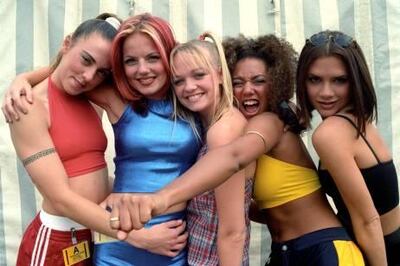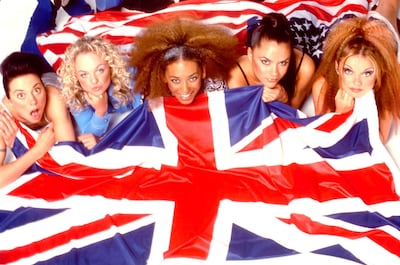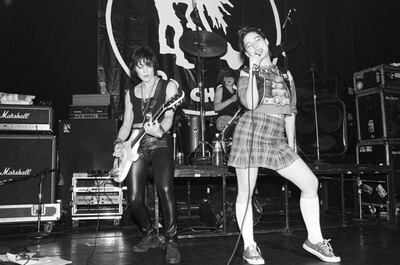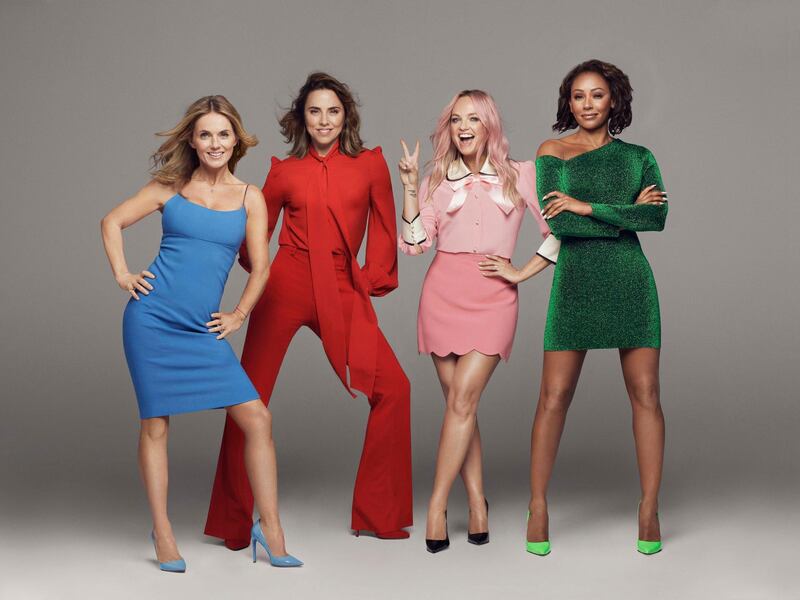The first time I ever heard a song by the Spice Girls was 1996. I was almost 10, and I went to a school disco with a friend (I grew up in Bahrain, but was back in the UK for the summer). Mid-dance, Wannabe was played.
The next day, I couldn’t get it out of my head. I didn’t even know what the song was, but I kept repeating “I’ll tell you what I want, what I really really want,” over and over.
It turns out it wasn’t just me: these British women were all anyone (my age) was talking about that year. The internet was in its infancy, so chat of Ginger, Sporty, Baby, Scary and Posh hadn’t yet reached Bahrain’s shores, but as soon as we were all back from our summer breaks, you better believe we were lining up in the school playground, zigazig ha-ing, playing our parts (I was Baby).

‘Girl power’ was their message, and I will admit there was a part of me that felt slightly empowered by their music. Five women in variously scantily clad outfits aren’t natural leaders of a feminist movement – and they weren’t. But that doesn’t mean we should discount their influence, either.
After all, back then, they brought girls together. They championed friendship (at least publicly). They showed us it was OK to be loud and lairy. They made it cool to be a girl in a way that no other group or celebrity or even real people in my real life had done, up until that point.
At the same time, they were (mostly) from working-class backgrounds. They were grafters, they hustled. And even though each of their distinct (let’s face it, manufactured) personalities was entirely one-dimensional on its own, when you bring those together as a whole you have one main message: you do you.
They taught us that it doesn’t matter if you’re a girl who doesn’t like pink (and it’s OK if you are!), at the end of the day each of us is unique. That was actually quite revolutionary for the ‘90s.

But then, in the same way that many moments in Friends haven't aged well (we won't go into that), suggesting that the lollipop-sucking Spice Girls championed female empowerment feels almost silly in 2019. Too much has happened since then.
I was blonde and had a baby face when I was 10 (still do). But what if you didn’t neatly fit into one of the Spice Girls’ five tropes? Each of those women were traditionally beautiful. What if you weren’t? They wore make-up, short skirts and sang about boys. What if that wasn’t your jam?
This is the land of mainstream pop music we’re talking about, so any real message of equality for women was always going to be watered down and sugarcoated at best, and entirely misleading at worst.
I can't say I learned anything real about identifying the ways in which women are systematically held back in a male-dominated world from Viva Forever, Say You'll Be There or Who Do You Think You Are. Nor did I pick up any great pearls of wisdom from all the money-making merchandise we were barraged with.
By the time I hit my teens, I was listening to another girl band called Bikini Kill. They pretty much defined the 1990s feminist punk movement that had sprung up in America, and the name of their riot grrrl zine was Girl Power (funny, that).

Lead singer Kathleen Hanna knew how to stand up for herself at rowdy gigs (she regularly battled with men who provoked her) and the band’s mantra, if they had one, became “girls to the front”. Their message was crystal clear even before the Spice Girls hit the radiowaves: let’s smash the patriarchy.
The Spice Girls – 2019 Tour starts today. Bikini Kill takes to the stage for the first time in two decades in June. I still have a lingering fondness for the Spice Girls, a sense of nostalgia that will never die, and I believe they served a purpose back in the day. But, today, I'd choose to follow Hanna's message over the now-foursome, unless of course they're planning to update it for the times.
As a woman in her thirties, who’s lived through #MeToo and Time’s Up, I’ve decided that feminism means more than the coming together of five types of girls singing lines like “If you wanna get with me better make it fast”. Thankfully, I’m pretty sure I’m not alone in that, either.







